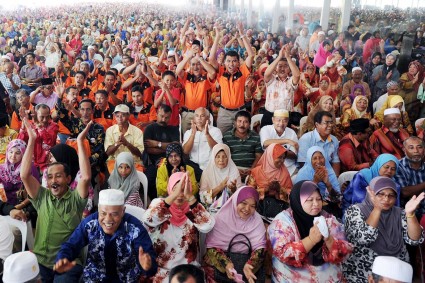The impact of rural votes in helping BN cross the line at the Malaysian GE13 continue to be a key finding among analysts. Lee Hock Guan of ISEAS provides his take on this in ISEAS Perspectives:
The principle of “one man, one vote” was never entirely adopted in Malaysia and disproportionate weightage to favour rural areas was incorporated into the electoral system from the beginning. The ruling Barisan Nasional (BN) has since used the apportionment of seats and the demarcation of constituency boundaries to reinforce its advantage.
Dr. Lee noted that:
-
In the recent 13th General Elections, BN’s malapportionment and gerrymandering strategies over decades resulted for the first time in the opposition Pakatan Rakyat winning the popular vote yet failing to gain control of parliament;
-
Since 1972, electoral delineation rules have allowed for rural weightage without clear limitations. The erosion of Malay electoral support in the 1999 election further led BN to use constituency re-delineation in 2002 to preempt future Malay vote swings against it and to take advantage of the opposition parties’ inability to overcome ethnic vote-pooling;
-
However, with the emergence of an opposition multi-ethnic coalition Pakatan Rakyat (PR) that can also gain from ethnic vote-pooling, mixed constituencies ceased to be BN strongholds. Since 2008, the ethnic voting trend favours PR.
 Facebook
Facebook  Twitter
Twitter  Soundcloud
Soundcloud  Youtube
Youtube  Rss
Rss 